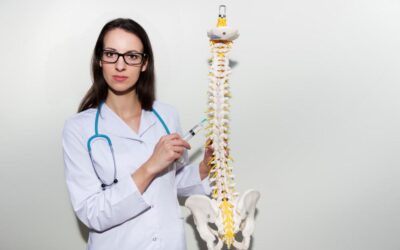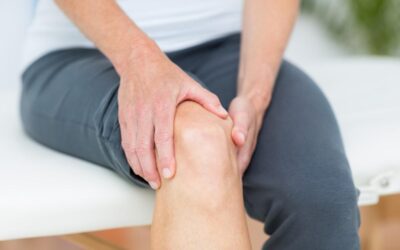Nearly 60 million Americans have been diagnosed with arthritis, a group of diseases that cause joint inflammation, stiffness, and pain. That number doesn’t include an unknown number of men and women who have arthritis but haven’t sought medical care for their symptoms.
Arthritis symptoms happen more often among older people and people who put a lot of stress and strain on their joints, like athletes. But can your genes also play a role? The answer: Yes.
As a top-ranked pain management specialist with offices in Los Angeles and Irvine, California, Hasan Badday, MD, helps patients at Pacific Pain and Regenerative Medicine get to the root cause of their arthritis, providing custom treatment plans that adapt to each patient’s changing needs.
Here’s how heredity may play a role in your symptoms — and even in your chances of developing this potentially debilitating condition.
Arthritis: Types and symptoms
When we hear the word arthritis, most of us think of osteoarthritis (OA), the most common type that happens a lot more often as we get older. But arthritis actually includes more than 100 conditions that cause joint inflammation, stiffness, and pain.
OA happens when years of joint use cause your joint surfaces to slowly wear away. The second most common type of arthritis — rheumatoid arthritis (RA) — is an autoimmune disorder that develops when your immune system mistakenly attacks your joint lining.
Other types of arthritis include:
- Septic arthritis, caused by joint infection
- Reactive arthritis, caused by an infection in another body part
- Gout, associated with a buildup of uric acid
- Psoriatic arthritis, associated with the skin condition psoriasis
- Lupus, another type of autoimmune disease
- Ankylosing spondylitis (AS), a kind of arthritis that affects your spine
Researchers are still learning more about arthritis, including how and why it occurs. What they do know is that many types of arthritis involve specific genes that may only become active when acted upon by outside environmental triggers.
How heredity plays a role
Some types of arthritis, like septic arthritis, are directly related to infection. But other types of arthritis can be influenced by heredity and your genetic makeup. Here’s how heredity likely influences three of the most common types of arthritis: OA, RA, and AS.
Osteoarthritis
Lots of issues can cause or contribute to osteoarthritis, including repetitive strain on a joint, obesity, and age. But genes also play a role — in fact, up to two-thirds of OA cases have a genetic component, particularly arthritis that affects your hips and hands.
Researchers say multiple genes are likely involved in OA. Some of these genes may affect collagen, the tough, slick coating that protects the bones that form joints.
Rheumatoid arthritis
The link between genes and RA is more distinct. That’s because RA is caused by an immune system problem, typically more common among people with specific genes or sets of genes.
About 100 genes have been identified as contributing to RA, typically when those genes are activated by an outside stimulus, like an injury, infection, or harmful habits like smoking.
Ankylosing spondylitis
Ankylosing spondylitis (AS) is a type of arthritis that affects your spine. As it turns out, more than 90% of patients with this type of arthritis also carry a specific gene that makes them more prone to the condition.
However, simply having the gene doesn’t mean you’ll develop AS, and not having the gene doesn’t mean you won’t get AS. Still, researchers say the gene appears to be a predisposing factor that probably activates in response to one or more environmental triggers.
Heredity and anatomy
Because arthritis affects your joints, heredity may also play a role in terms of your anatomy. For instance, if you inherit a specific foot shape, that could affect your gait and how you bear weight with every step you take. In some cases, that could also mean you wind up putting extra strain or uneven stress on your knees or hips, leading to joint wear and arthritis.
Get help for your arthritis symptoms
Arthritis is a leading cause of disability in the United States, and because it’s a degenerative condition, it’s especially important to seek treatment as soon as possible. While eventually therapies may be developed to target the genetic factors of arthritis, today most treatments are focused on reducing inflammation, relieving pain, and slowing the progression of the disease.
Dr. Badday has extensive experience in cutting-edge arthritis treatments tailored to help women and men of all ages. To learn how he can help you find relief for your symptoms, book an appointment online or over the phone today at the Pacific Pain and Regenerative Medicine location most convenient to you.









